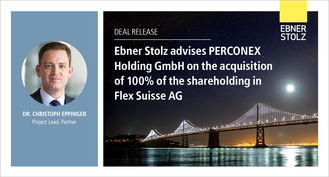The upshot is that publicly traded companies need to act at a faster pace, for example, than family businesses. That involves a higher degree of oversight and numerous disclosure obligations, with more rigorous requirements to be met by the independent auditor of financial statements.
For example, auditing publicly traded companies is subject to International Financial Reporting Standards (IFRSs) and tight time schedules for reporting, as a result of the requirements of securities law or the exchanges’ own rules. Another exceptional feature is the additional review (enforcement) by the German Financial Reporting Enforcement Panel (DPR) of financial reporting of companies traded on the regulated market in Germany.
Our auditing teams meet these stringent requirements. At the same time, publicly traded companies can also benefit from our holistic consulting approach, in which auditing and consulting go hand in hand. That enables us to discover potential for improvements, and to make adjustments early on.
Our services at a glance
- IPOs
- Compliance
- International Financial Reporting Standards (IFRSs)
- DPR audits
- Shareholders’ meetings
- Statutory special audits
- Preparation of prospectus
- Management board contracts
- Capital Market law advice



